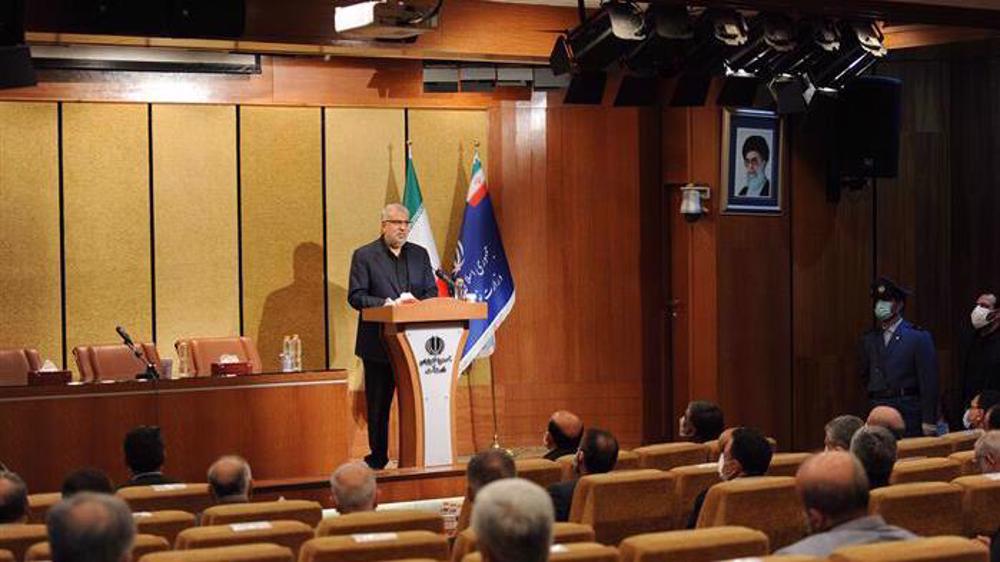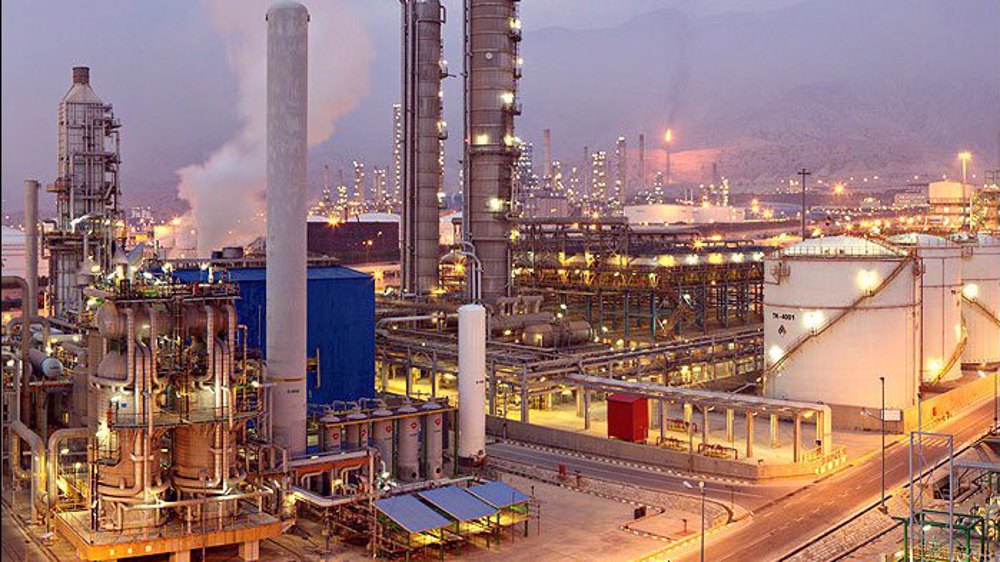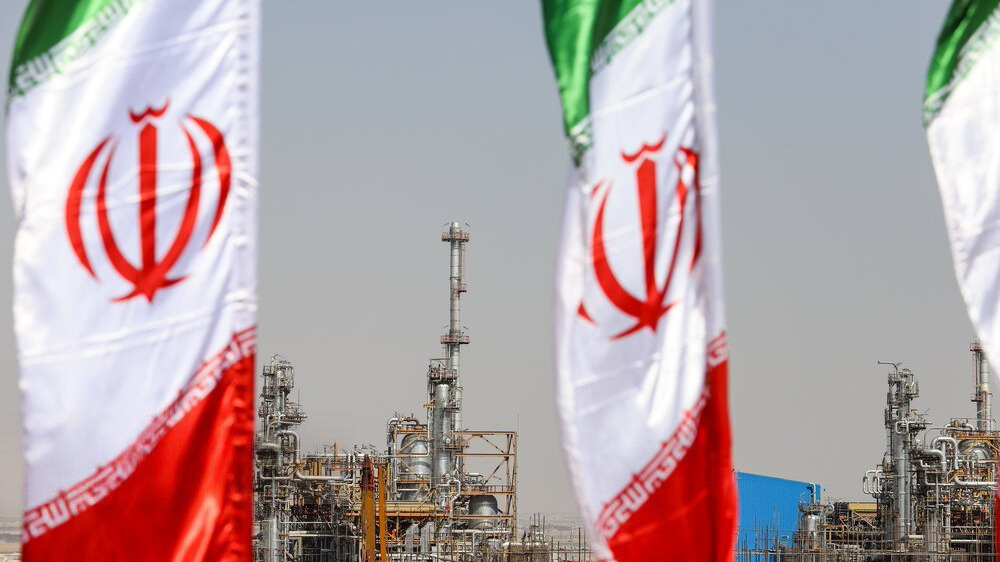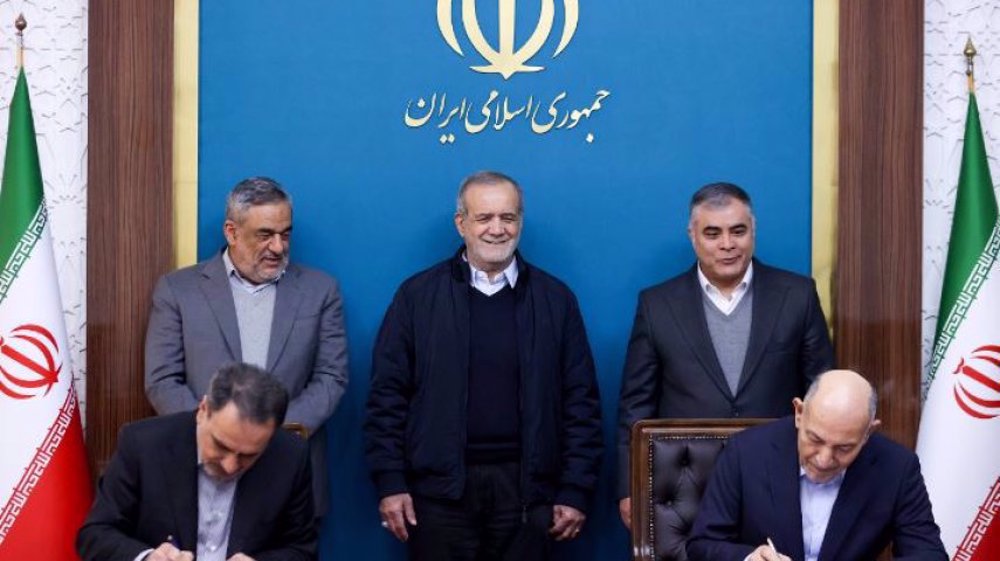Minister: Sanctions deprived Iran of $100 billion in oil revenues
New Minister of Petroleum Javad Owji says the "tyrannical" US sanctions have deprived Iran of 1.8 billion barrels of oil exports and more than $100 billion of revenues.
Addressing the first OPEC Plus meeting since being named to the new post, Owji also touched on the US embargo against Venezuela, saying "the imposition of illegal and unilateral US sanctions on the two founding members of OPEC is contrary to the principles and rules of international law".
The US imposed its most draconian sanctions on Iran three years ago with the express aim of bringing the country's oil exports down to zero after Washington abandoned an international nuclear deal with Tehran.
No matter how hard it tried, the US did not achieve its goal and Iran continued sending its oil to the market – though in reduced volumes - using innovative ways to bypass the illegal sanctions.
Owji promised that "good things will happen in terms of oil sales in the coming months".
"After the tyrannical sanctions, oil sales dropped dramatically but this capacity exists in the Ministry of Petroleum and all departments to sell oil," he added.
One of the ways is to swap oil for goods or investment, Owji said, adding the potential can also be used in other sectors and industries.
Return to pre-sanction production
Oil markets are closely watching Vienna negotiations which have been suspended since mid-June, for any clues as to when the OPEC member will be able to resume crude sales. Six rounds of talks have been held so far to bring the US back to compliance with the 2015 nuclear deal, but Washington is dragging its feet on removing its sanctions.
Owji said Iran will return to its pre-sanctions crude production level as soon as the US sanctions are removed. “We are against using oil as a political tool that would harm the oil market.”
Petroleum ministry officials have said a removal of the sanctions could bring back 3.8 million barrels per day of Iranian oil to the market over time. They are confident of the country's ability to increase production quickly. One senior official said recently that most output could be restored within a month.
Iran has been exempt from cuts to global supply agreed between OPEC and non-OPEC members in recent years in order to shore up prices.
Former Minister of Petroleum Bijan Zanganeh said before leaving office last month that Iran would not accept any limit to its exports of oil when the situation normalized with the removal of the US sanctions.
On Wednesday, the Organization of the Petroleum Exporting Countries and allies, a group known as OPEC+, decided to stick to a policy from July of phasing out record output cuts by adding 400,000 barrels per day (bpd) a month to the market. Owji said Iran backs the decision.
"We will definitely work with OPEC and support the OPEC+ statement. The head of OPEC also reminded that as soon as the sanctions on Iran are removed - and specifically in the field of Iranian oil – 'we (OPEC) will not have any restrictions on oil activities and cooperation with Iran', and as soon as the sanctions are removed, we will return to the same capacity we had before the sanctions," he said.
New ministry's priorities
Owji also touched on his ministry's priority to combat corruption, saying efficient and capable forces have already been identified for the purpose.
"The bottlenecks, including with regard to contracts, transfer to contractors and purchase of goods, have been correctly identified," he said.
Owji also said his ministry will focus its support on domestic manufacturers and knowledge-based companies to move towards reducing costs by strengthening domestic potentials.
"I remember as a CEO in the oil upstream some 20 years ago, about 60 to 70 percent of the goods needed in our projects were imported, but today thanks to the sanctions, we see that 65 percent of the goods are domestically made and only 30 to 35 percent are imported."
UK police usurped by Zionists
Baghaei to Press TV: Iran enters Geneva talks with ‘open mind and open eyes’
Warships can be sent to the seabed, Leader says in response to Trump’s threats
VIDEO | Press TV's news headlines
Iran to pursue strong defense, careful diplomacy during talks with US: Deputy FM
Second round of indirect Iran-US nuclear talks opens in Geneva
‘Racist’ Florida congressman draws outrage over Islamophobic comment
‘Get the files out’: Hillary Clinton slams Trump for Epstein files ‘cover-up’











 This makes it easy to access the Press TV website
This makes it easy to access the Press TV website